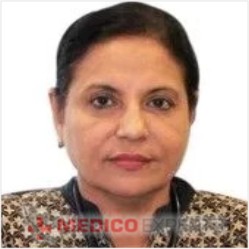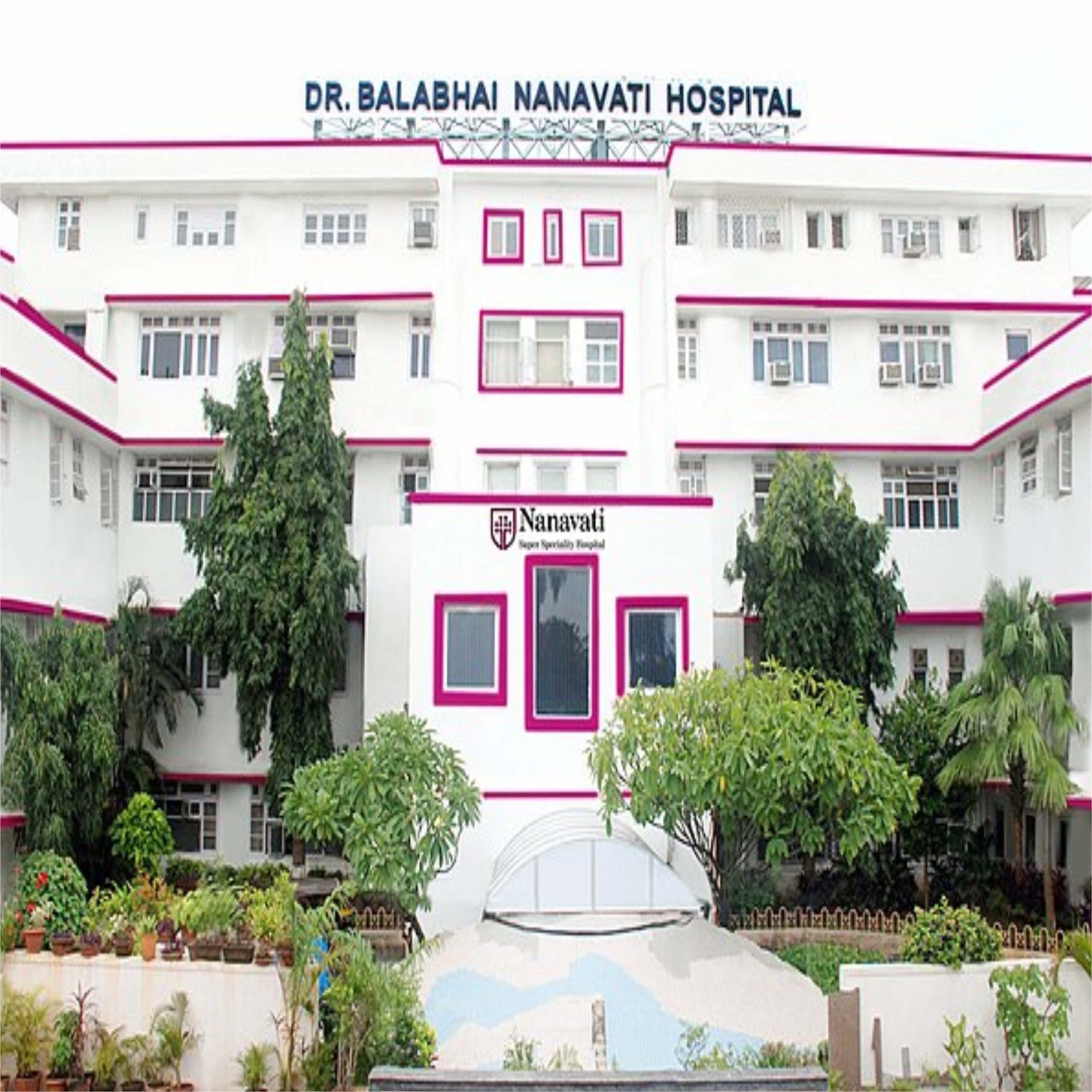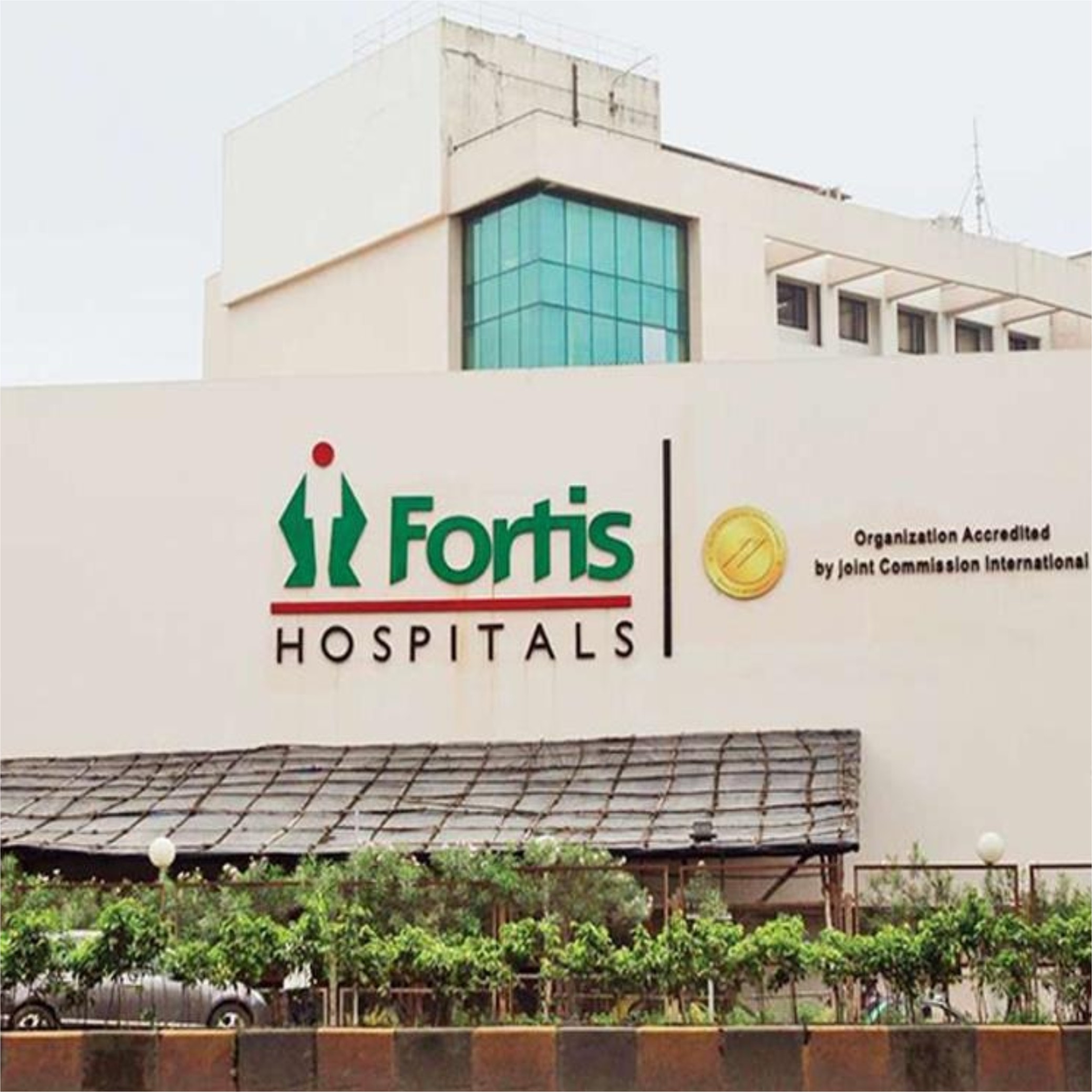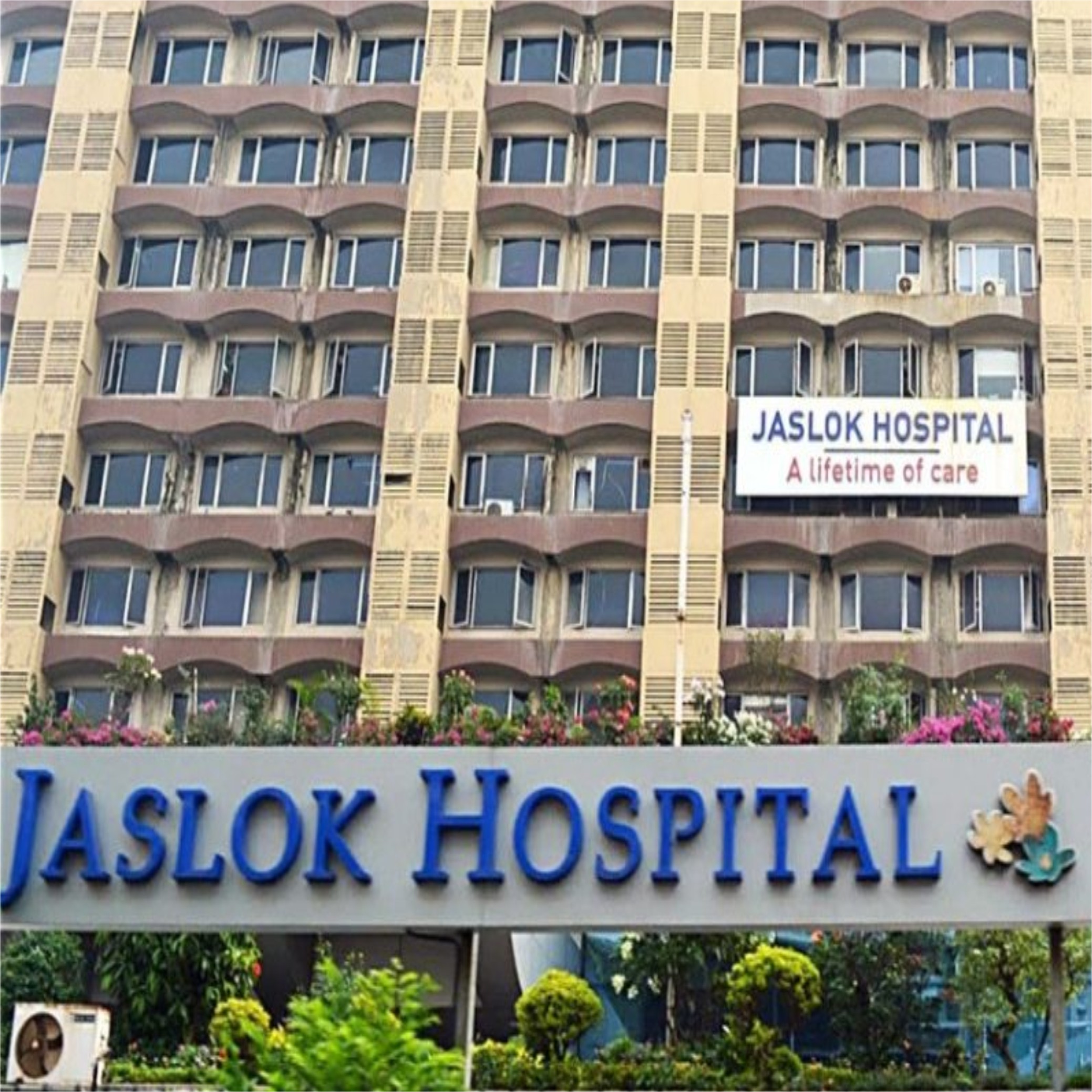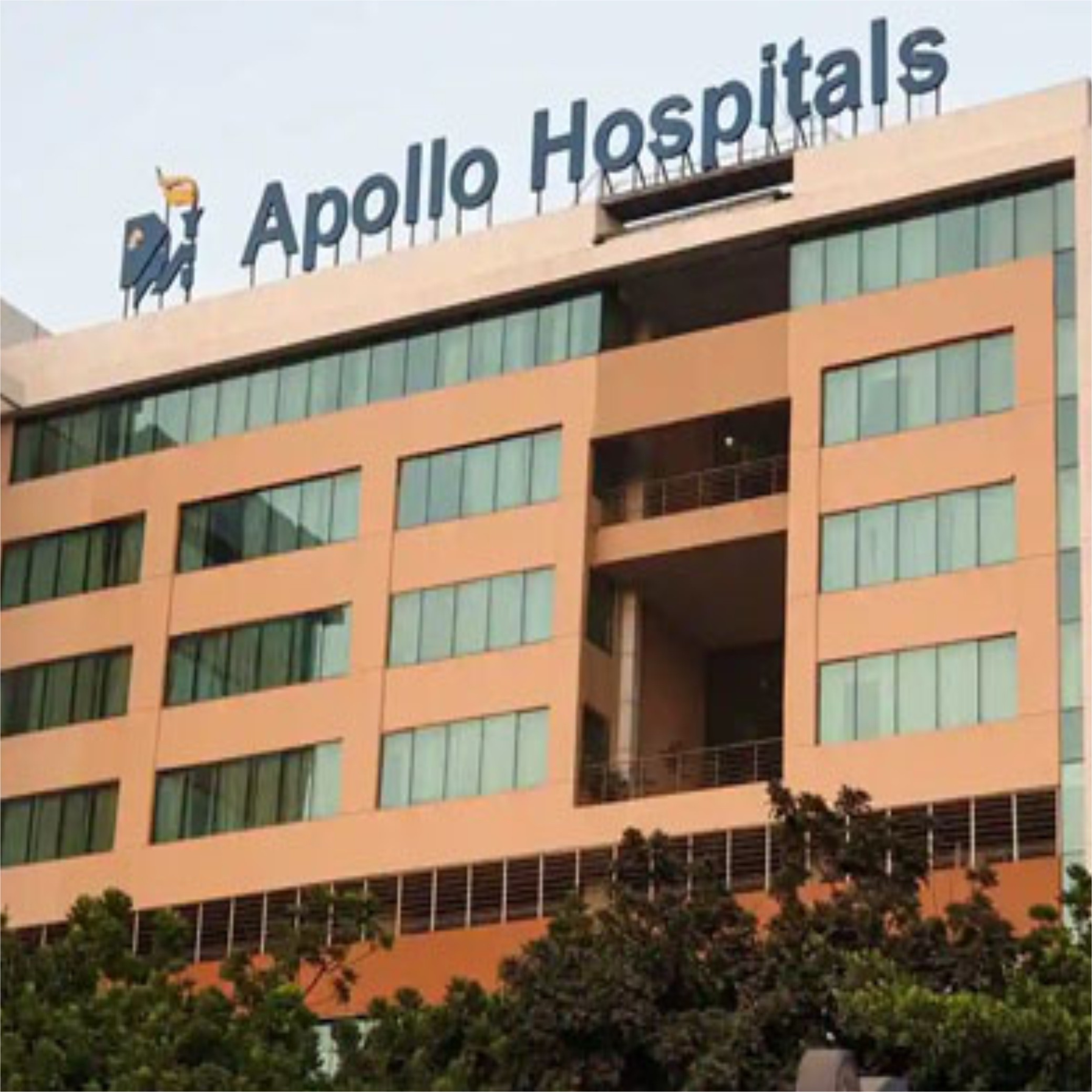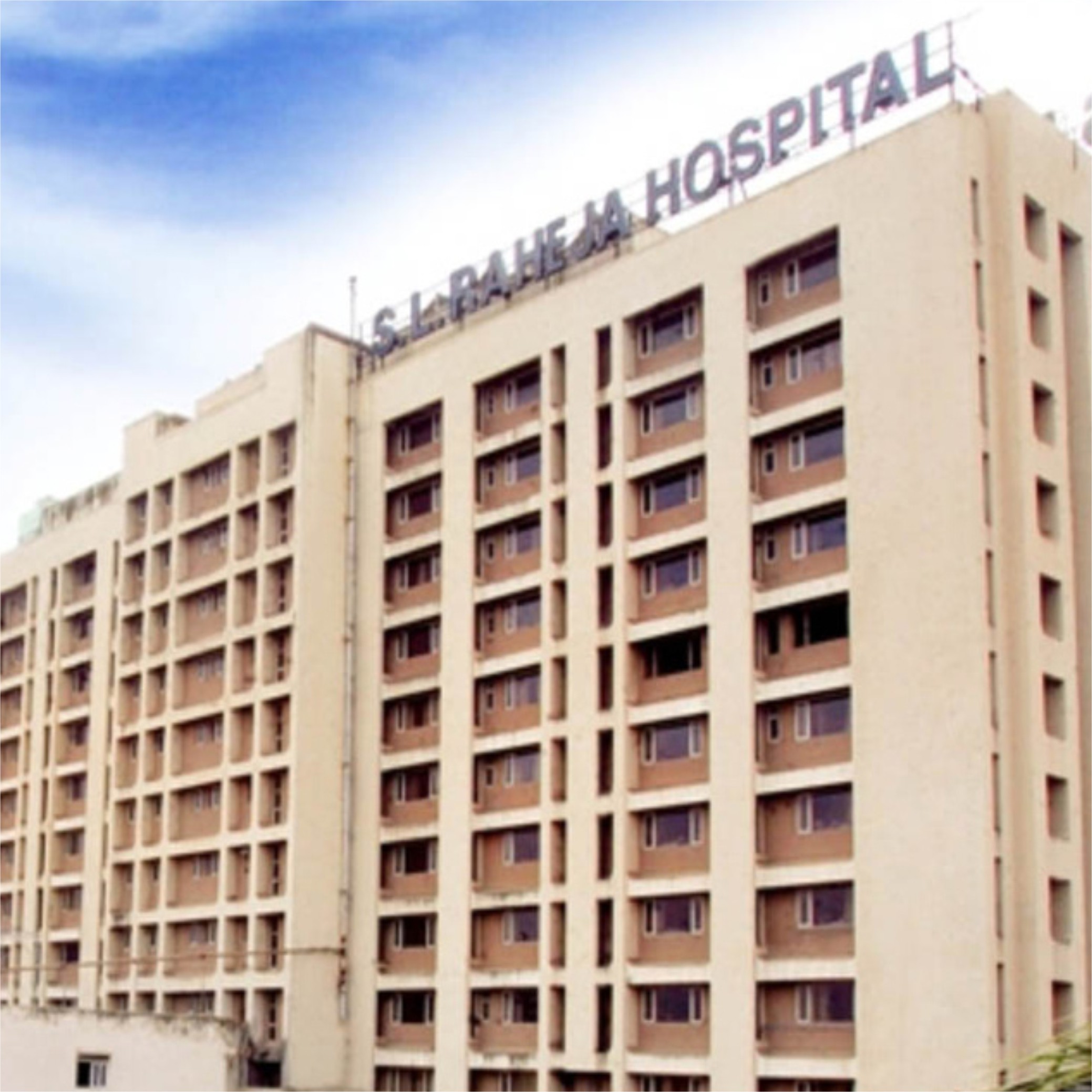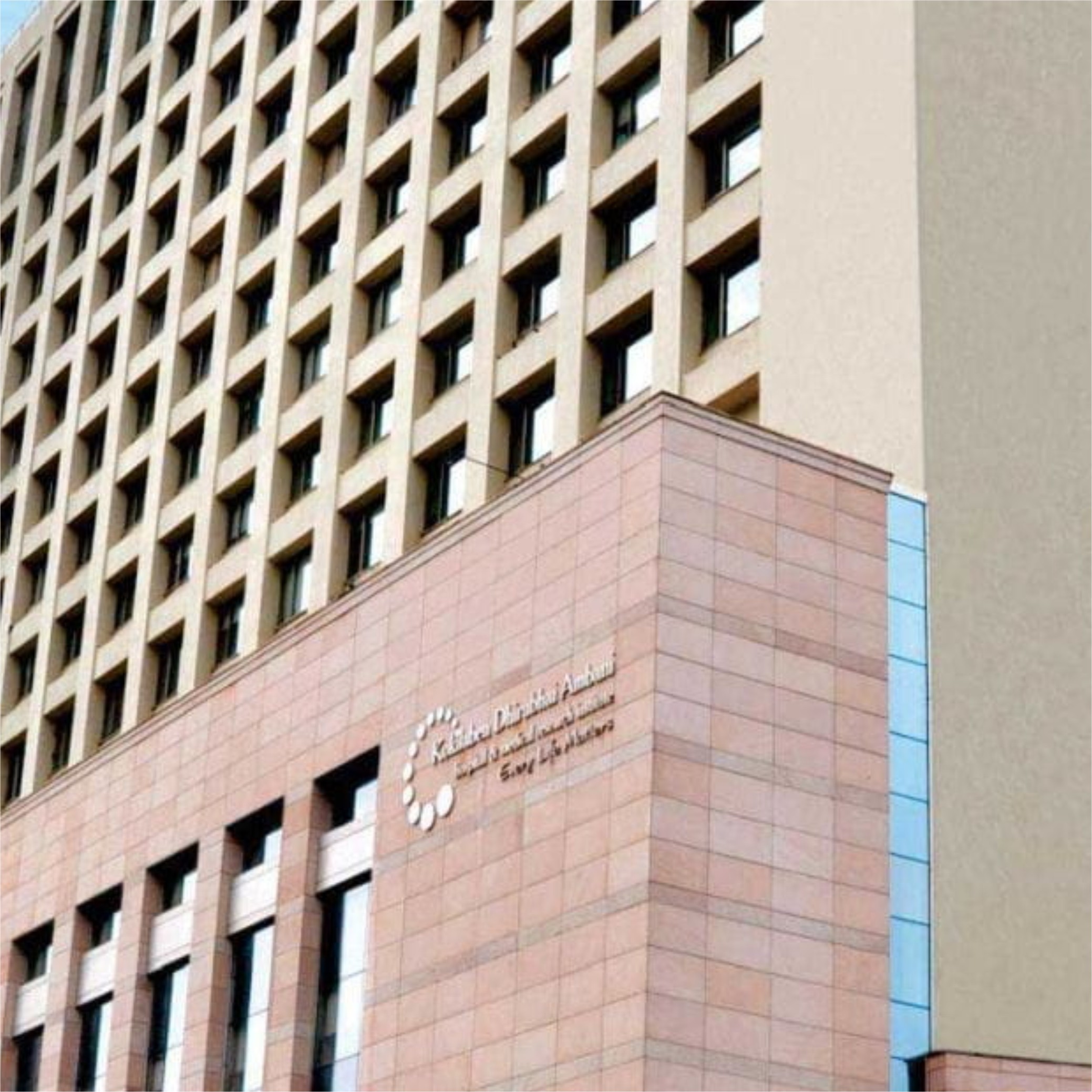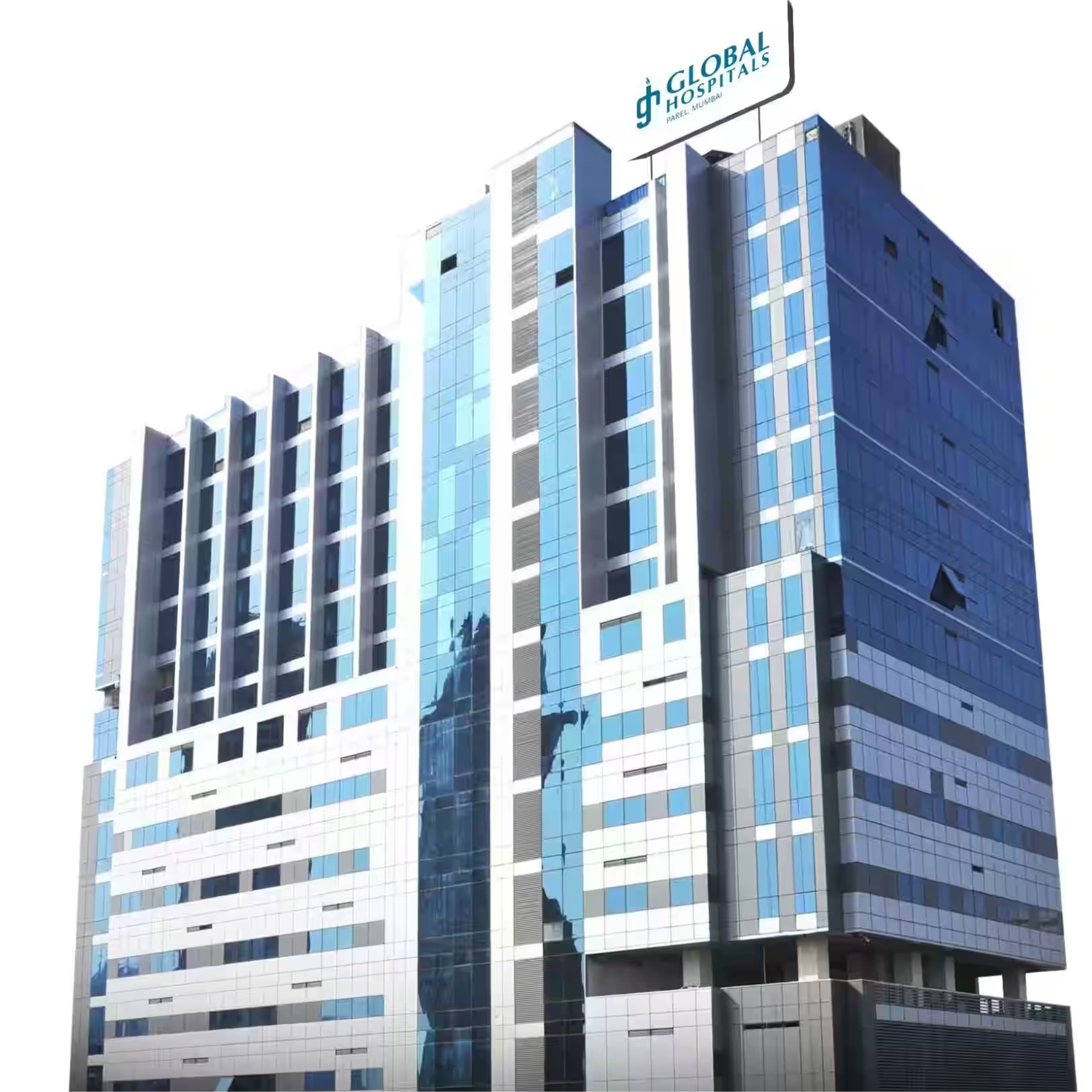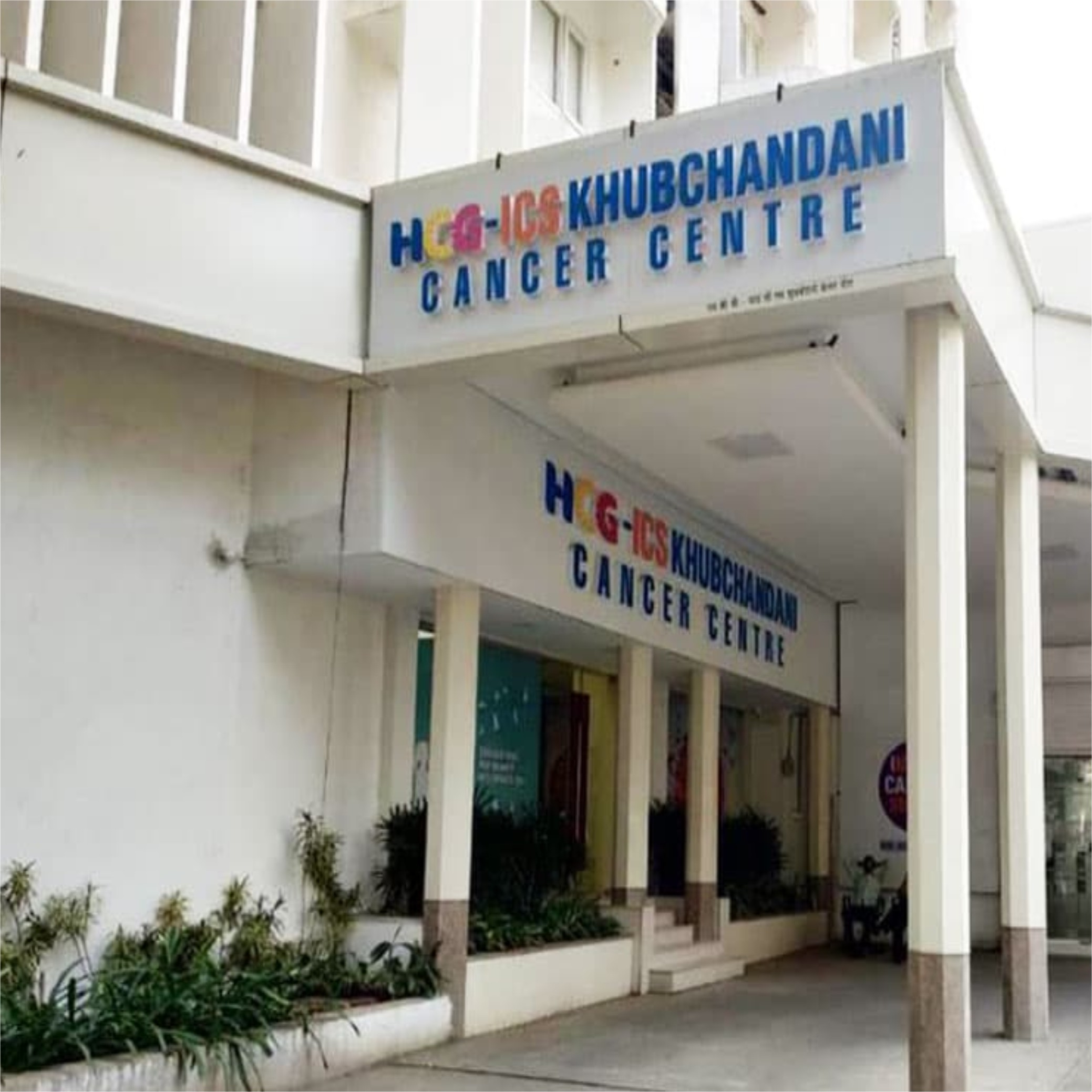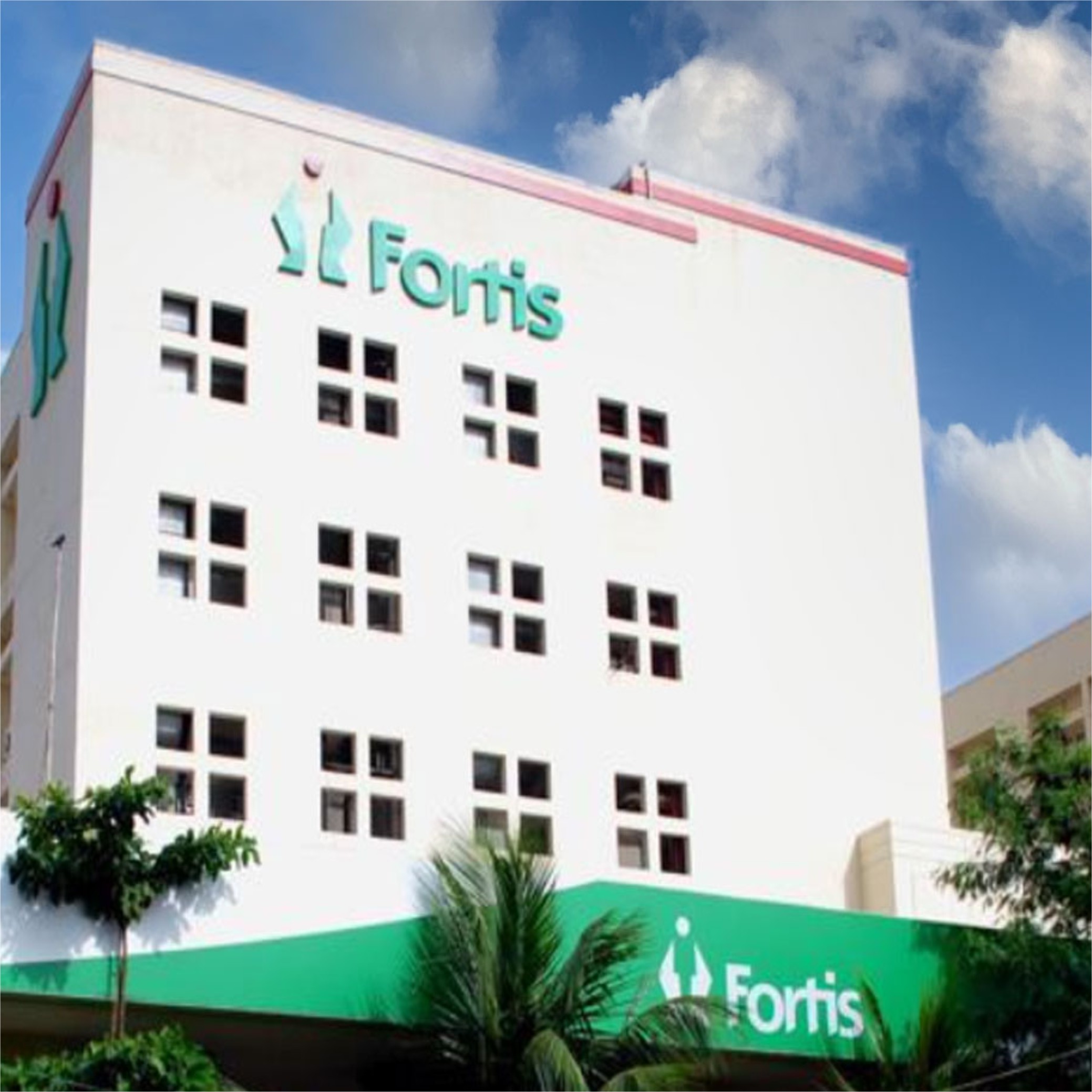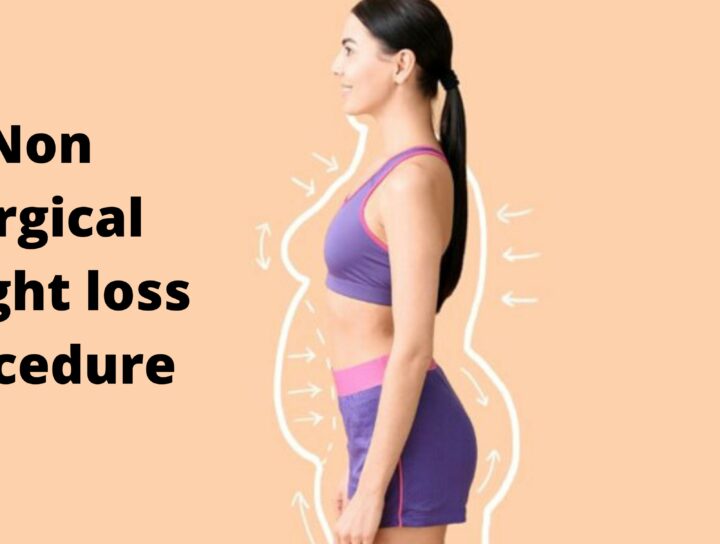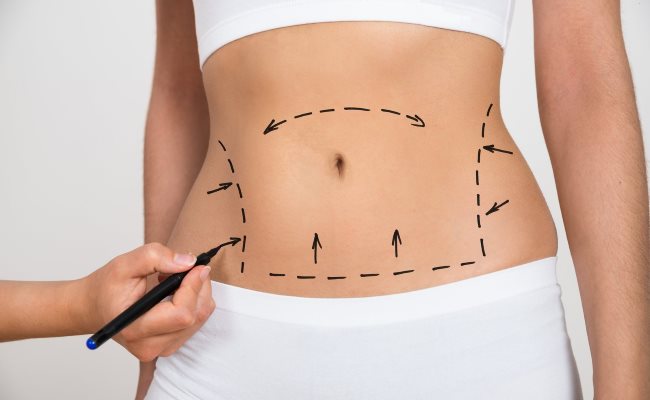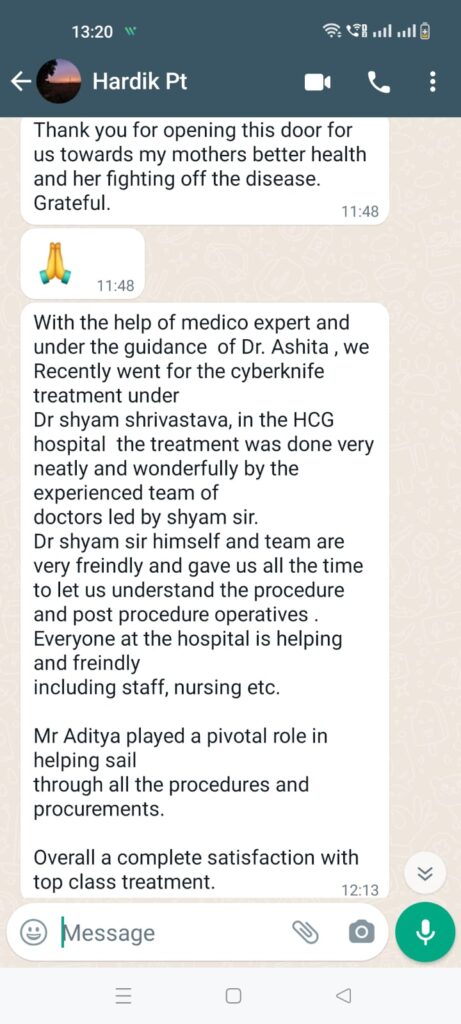Avail the best IVF treatment in India
Are you struggling to conceive a child even after trying for more than a year?
Parenthood is a dream of almost every couple. The desire to give birth to a child is genetically motivated and is considered one of the greatest sources of joy for couples.
However, with a severe decline in fertility levels, the present generation has seen millions of couples who desire to become parents. Infertility in women, lowered sperm counts or low sperm quality in men are some of the most common causes that make experiencing parenthood difficult for such couples.
The recurrent failed attempts to conceive with no success is a matter of concern. However, there is nothing to worry as today’s advanced medical world has plenty of solutions to reverse your infertility.
With proper medical help, you can get to know why you are unable to conceive and by knowing the cause of the infertility doctors can help you.
IVF is one of the most popular fertilizations procedures used to
IVF has changed the life of many couples, who failed to have a child because of several causes.
This procedure has helped women with blocked tubes, endometriosis, poor quality eggs, abnormal cervical mucus, ovulation disorder, genetic abnormalities, and unexplained infertility to conceive.


The revolutionary IVF treatment has helped millions of couples to expand their family. With IVF treatment, take a step forward from infertility to parenthood as Manisha did.
Mrs Manisha Joshi from Bangalore, India got married at the age of 32 to the love of her life Sumit who was 36 years old at the time of marriage.
The couple was leading a happy married life but with time they felt that a child could help them complete their family. But despite trying to conceive a child for more than a year the couple failed. Heartbroken, the couple decided to consult a gynaecologist.
The gynaecologist recommended some diagnostic tests for both Manisha and Sumit. The test report suggested that Manisha had blocked fallopian tubes which affected her fertility. Moreover the blockages were so big that the probability to remove them through a laparoscopic surgery was not also feasible.
The diagnosis left the couple dejected. However, the gynaecologist explained to them that despite blocked fallopian tubes Mansha can still conceive by undergoing an artificial fertilisation procedure like IVF.
The couple did not wish to waste any moment more and they started searching for the best place that offered IVF with high success rates. While searching, Sumit visited the MedicoExperts website and dropped the inquiry.
The MedicoExperts patient care department contacted Sumit, and Sumit explained his issue to the team and forwarded all the reports to the patient care manager of MedicoExpert. After receiving the reports, online video consultation is arranged with one of the prominent experts for IVF treatment.
After the embryo was formed the doctors implanted the embryo in Manisha’s womb.
After two weeks after the implantation, the couple visited the hospital as advised. The doctor performed a pregnancy test for Manisha. The pregnancy test came positive for Manisha.
Overjoyed by the pregnancy report the couple thanked the doctor and MedicoExperts.
After nine months Manisha gave birth to a beautiful daughter.
Like Manisha, if you are unable to conceive consult with your gynaecologist and explore IVF treatment.
But before that let us understand more about this procedure.
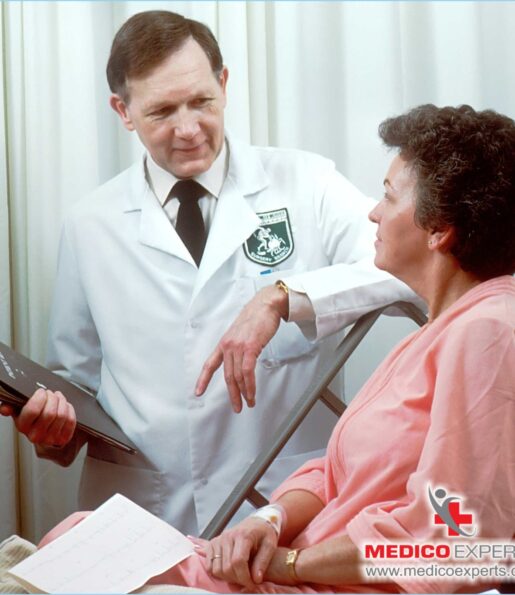
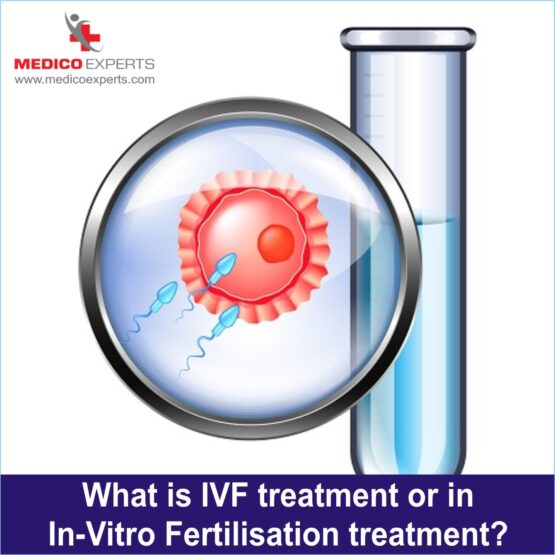
What is IVF treatment or in In-Vitro Fertilisation treatment?
IVF or In-vitro fertilisation or test tube baby is a fertility treatment during which the male and female gametes are fused outside of the human body in a Petri or laboratory dish. Since fertilisation occurs outside the body in a laboratory dish this procedure is popularly known as Test tube baby.
Generally, IVF can be performed in two ways :
Self cycle: During the self cycle the eggs and sperm are collected from the partners and later these gametes are fertilised in the laboratory.
Donor cycle: During a donor cycle either the egg or the sperm or sometimes both the egg and sperm are collected from a donor. Sometimes donor embryos may be used during the donor cycle too.
During the IVF procedure, the sperm and the egg are fertilised in controlled laboratory conditions. Once fertilised the fertilised egg forms the embryo. However, the doctors wait for a few days before planting the embryo in the uterus of the female partner or the surrogate.
After two weeks from the implantation day, your doctor may advise you to undergo a pregnancy test. If the test comes positive that means the implantation was successful.
When is IVF Treatment done?
IVF treatment is typically suggested in cases where either or both the partners have primary infertility- inability to conceive naturally-, or secondary infertility,-inability to have children after conceiving naturally in the past-.
Infertility can be caused due to underlying conditions in either of the partners or both partners.
Some fertility conditions for which your doctor may suggest IVF treatment are:
The fallopian tube plays an essential role in fertilisation because generally, fertilisation takes place in this part of the uterus. Any damage or obstruction in the fallopian tube Fallopian tube is the location where fertilisation takes place in the female anatomy.
Damage or blockage here would mean that the mature egg isn’t able to follow the course of the journey through the fallopian tube and of the fertilised product, the embryo, into the uterus.
Ovulation is a physiological phenomenon when a mature egg leaves the ovary to get fertilised. However, sometimes there is an absence of a mature egg during a fertile period hence there will be no fertilisation.
The lack of presence of mature eggs can cause infertility.
Endometriosis is a gynaecological condition during which the endometrium lining that covers the inner part of the uterus develops on the outer or other parts of the uterus.
Endometriosis affects around 20% of women who are of reproductive age.
This disease condition affects the number and quality of eggs thereby affecting your fertility adversely.
Uterine fibroids are non-cancerous tumours that grow in the uterus. Generally, these fibroids affect the fertility of the women due to the fluctuating hormone levels because of the fibroid.
Poor egg quality is one of the leading causes of infertility among women older than 37 years. The poor egg quality affects the ability of the embryo to get implanted. Sometimes the compromised embryo quality may cause miscarriage or call for medical termination of pregnancy.
The fertility of women starts to decline once they reach 35 years. Mostly this decline in their fertility is because of the quality and quantity of the egg.
As the IVF treatment ascertains that genetically healthy embryos are used during implantation the health risks due to pregnancy at an advanced maternal age can be averted.
A successful pregnancy occurs when the embryo implants itself into uterine wall called as endometrium. This can take 6-10 days after embryo transfer phase. Then the initial pregnancy test is performed to determine if you are pregnant.
Once the viability is confirmed, you will be referred the Obstetric and Gynecologist for appropriate prenatal care.
Sometimes the cervical mucosa secretes abnormal mucus that can kill the sperm. This abnormal cervical mucus can destroy the sperms causing infertility.
Sometimes the cervical mucosa secretes abnormal mucus that can kill the sperm. This abnormal cervical mucus can destroy the sperms causing infertility.
Despite several reasons for developing infertility, there are a few couples who fail to conceive a child without any known reasons.
What is the procedure for IVF treatment in India?
When you undergo the IVF procedure, the following are the steps you can expect to go through for successful conception.
Step 1- Consultation:
The first step in the IVF procedure is to consult with a fertility/IVF specialist to discuss medical history. IVF does not guarantee 100% success and hence, the risks and side effects of the procedure must be understood.
Step-2 Blood Tests and Scans
Typically the consultation is followed by blood tests and scans through which your doctor gets to know about the various parameters that may affect fertility. Your doctor may suggest tests such as hormone levels, semen analysis, and ultrasound. The tests also help the doctor to ascertain any underlying chronic ailment.
Step 3- Follow-up consultation:
Once the results of the blood tests, semen analysis and scan results come your doctor will discuss the treatment plan with you based on the result. Typically your doctor may advise certain medications and injections for either of you or both of you.
Step 4- Stimulate Ovaries
Once the basic medication is done your doctor may inject some hormonal injection to stimulate the ovaries to produce multiple eggs.
Step 5- Monitoring
After the doctor is assured that the hormone injections have stimulated ovaries to produce enough eggs they regularly monitor the response to drugs through frequent blood tests.
Step 6-Trigger Injection
Once the blood reports show that hormone levels are at optimal levels, your doctor will administer a trigger to stimulate the maturation of the eggs.
Step 7- Egg Collection
As soon as the egg matures your doctor collects the matured eggs via needle. Generally, the eggs are collected after sedating the patient. Apart from collecting the egg, your doctor will also collect semen samples on the day of egg collection.
Step 8- Embryo Development
Once the mature egg and sperm are collected your doctor places them in an incubator to fertilise. Subsequently, the doctor observes the embryo’s development.
Step 9-Embryos are Transferred
Once the embryos are formed the doctor selects the best embryo and implants it in the uterus for its development.
Who is Eligible for IVF treatment in India and when is it not recommended?
IVF is most commonly used if either of the couple is suffering from one or more than one of the following conditions:
- Blocked Fallopian tubes
- Egg quality or ovulation problems
- Endometriosis
- Antibody issues, which harm eggs or sperms
- Sperm count or motility issues
- Unexplained infertility
IVF isn’t recommended for:
- Women who are above 50 years and do not wish to use donor eggs
- Females who are obese can cause pregnancy-related complications
- Women who indulge in substance abuse.
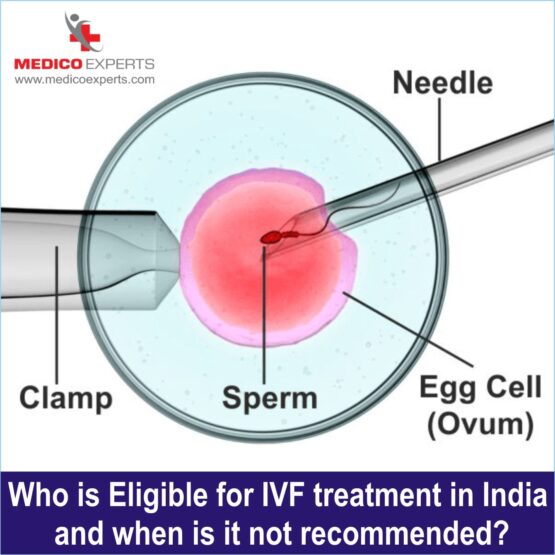
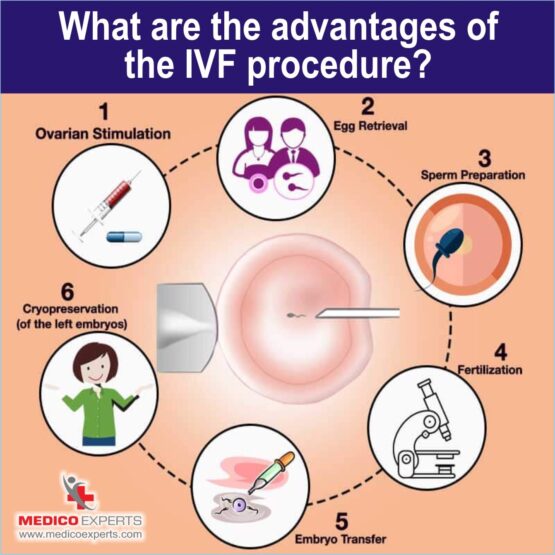
What are the advantages of the IVF procedure?
Some of the advantages of the IVF procedure are:
- High success rate
- Lowered chances of miscarriage during pregnancy
- By freezing eggs at an early age, you can conserve your fertility
- Through IVF therapy you can genetically get your child growing in someone else’s womb. It’s become a necessity when the female is unable to carry the pregnancy till the last stage due to different anatomical reasons.
- Helps you conceive a child without worrying about your blocked tubes, endometriosis, frozen pelvic, or sperm quality.
What are the IVF treatment side effects?
Generally, the procedure causes no side effects however a few people may experience:
- Mood swings
- Breast Tenderness
- Mild lower abdominal cramps
- Bloating
- Constipation
- Pelvic discomfort
- Headaches

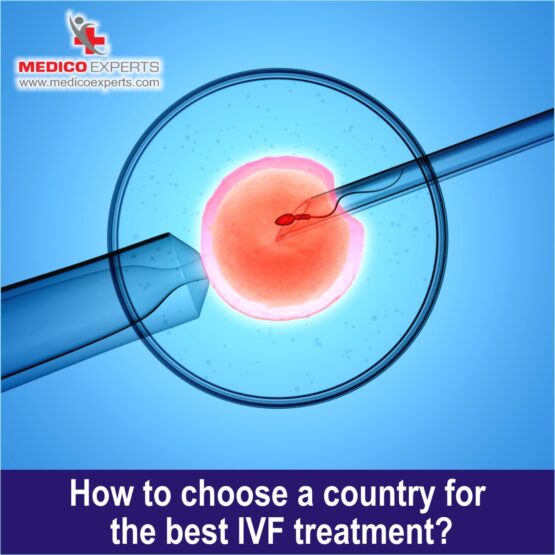
How to choose a country for the best IVF treatment?
IVF or In Vitro Fertilisation procedure requires the expertise of well-trained doctors and the availability of world-class healthcare facilities.
If you are finding it challenging to decide on a country where you could have your IVF procedure.
Below are tips that can help you select the best country for undergoing the procedure:
- Select a country that offers advanced healthcare facilities
- If you are on a tight budget, then choose a country that offers the best healthcare facilities at an affordable cost.
- Choosing a country with frequent flights from your home country is essential for better connectivity.
- By selecting a country with well-developed local transportation facilities, you ease your local commute while in that country.
India is one of the most affordable places for Infertility treatment across the globe.
Modern technology, State of the art hospitals, the most coveted gynaecologist and fertility specialists, excellent infrastructure at par with international standards, no language barrier, and seamless travel are some of the zeniths that magnetise individuals worldwide to get their IVF procedure in India.
How to choose a hospital for the best IVF procedure in India?
The hospital you select has a crucial impact on the IVF procedure’s success rate and your treatment experience. So you must be careful in choosing a hospital when planning an IVF procedure in India.
Also while choosing a hospital, kindly ensure that the hospital you have chosen is accredited by NABH and JCI. By opting for a NABH and JCI accreditation, you diminish your chances of developing any post-procedure complications or infections significantly.
Besides checking for the accreditation, when selecting a hospital for your IVF procedure, please ascertain that the facility has advanced medical devices and well-trained staff trained who can efficiently handle any post-procedure complications.
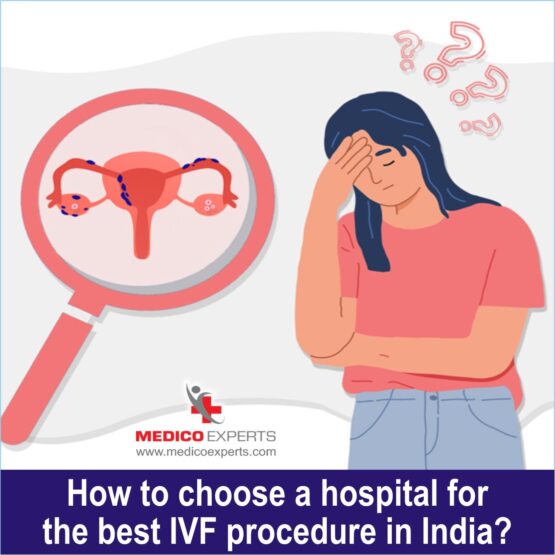
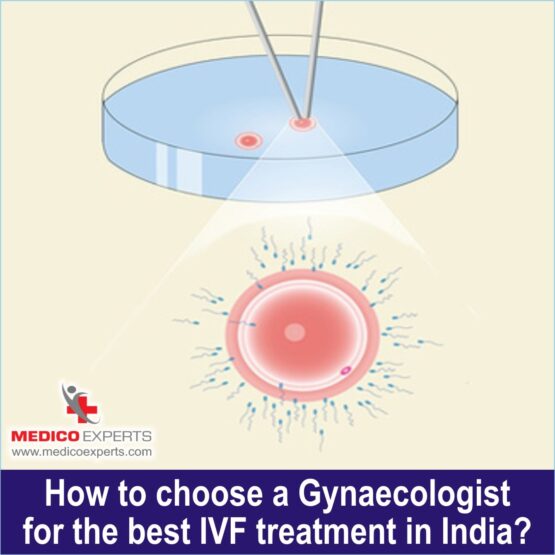
How to choose a Gynaecologist for the best IVF treatment in India?
Choosing a qualified doctor for your IVF procedure is essential because the procedure will be more likely to be successful with their expertise. Choose a doctor with whom you feel comfortable.
Additionally, when choosing a gynaecologist, make sure that he or she has had success performing IVF procedures in the past.
What is the IVF treatment success rate in India?
The success rate of IVF treatment in India depends on various factors like maternal age, the quality of the egg and the sperm. Besides the quality of the gametes, the success rate of the procedure also depends on the expertise of fertility specialists, embryologists, counsellors, nurses, and the infrastructure.
The success rate of the IVF procedure also varies depending on the procedure used during the IVF treatment like:
The success rate of IVF when performed with ICSI is around 40 – 45 % per attempt, which increases to 80 – 90 % within 4 consecutive attempts.
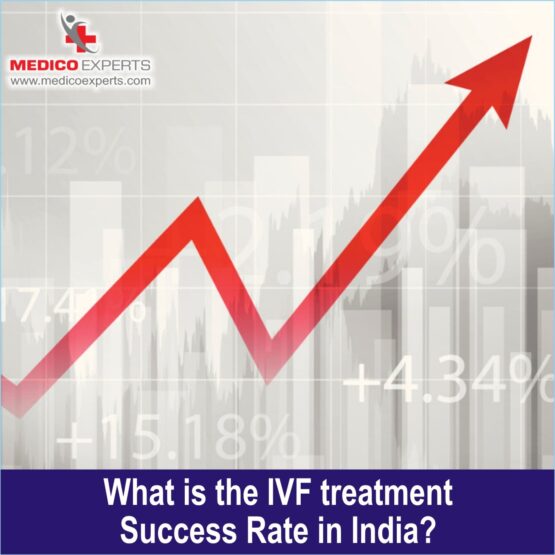
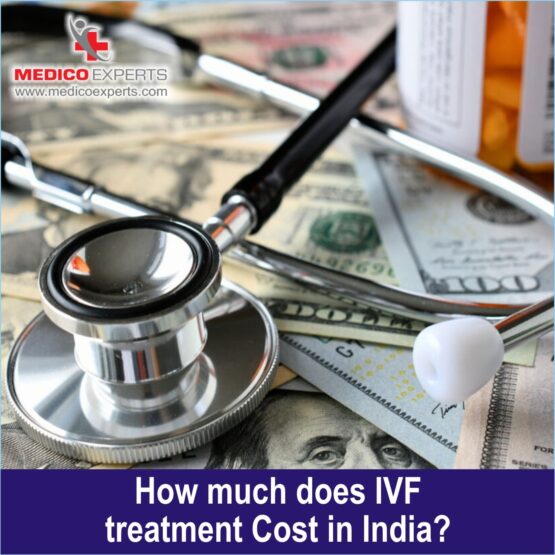
How much does IVF treatment Cost in India?
The cost of IVF treatment in India depends on various factors like the city, hospital, doctor and the procedure you have chosen for undergoing In Vitro Fertilisation.
Typically, the cost of IVF treatment cost in India is:
| Procedures | Cost of the procedure in INR | Cost of the procedure in USD | |
| 1 | IVF Evaluation Package | 45,000-80,000 | 600-1000 |
| 2. | In Vitro Fertilisation (IVF) | 2,80,000- 4,80,000 | 3500-6000 |
| 3. | In Vitro Fertilisation (IVF) with Donor Egg | 3,60,000-6,00,000 | 4500-7500 |
| 4. | In Vitro Fertilisation (IVF) with Donor sperm | 3,60,000-6,00,000 | 4500-7500 |
| 5. | IntraCytoplasmic Sperm Injection (ICSI) + IVF | 3,25,000- 5,30,000 | 4,000-7,000 |
Frequently Asked Questions and patient concerns:
1. What is the age limit for IVF treatment in India?
IVF treatment is recommended for women who are over 21 years but less than 50 years.
If you are close to 50, the doctor will recommend IVF with a donor egg.
However, women who have preserved their egg earlier or who undergo the IVF procedure with a donor egg can undergo this procedure at an older age too. However, these older women who are planning to conceive through IVF must not have attained menopause.
2. What are the three types of IVF?
The three different types of IVF are:
- Natural cycle IVF: During a natural cycle IVF your doctor does not administer any drugs to stimulate the ovaries to generate a generous number of eggs. However, in a few cases, ovary stimulation drugs are needed but it is generally for only 3-4 days.
- Mild stimulation or mini stimulation IVF: In mild Stimulation IVF the fertility drugs are given in minute doses and for a shorter time to reduce the risk of developing any side. With mild stimulation, you can produce 8-10 good quality eggs that can contribute positively and result in a successful pregnancy.
- In-Vitro Maturation IVF: In vitro maturation (IVM) is an assisted reproductive procedure during which a woman’s eggs are extracted before they are developed. The extracted eggs are then grown in a lab. Once the eggs get mature they are manually fertilised by using intracytoplasmic sperm injection (ICSI). The fertilised egg or embryo is then transplanted to the woman’s womb.
3. How successful is IVF on the first try?
Generally, women younger than 35 can conceive by in-vitro fertilisation (IVF) on the first try. However, the success rate of the procedure drops steadily as the woman ages.
4. Is IVF a painful process?
This answer to this question is subjective because every individual body responds to IVF treatment differently. Every woman experiences different sensations.
What might seem difficult to some may not be for others. Every woman who undergoes IVF reacts differently to the procedure and there are a few women who may experience some discomfort or may not.
5. Is IVF 100 percent successful?
None of the medical procedures is 100% successful. However, when the IVF procedure is performed by an experienced doctor the chances of a fruitful outcome of the procedure increase.
However, the success rate increases with progressive reattempts.
6. When should you consider IVF?
Women who face issues in pregnancy because of blocked or missing fallopian tubes can consider IVF as a choice of infertility treatment.
Unexplained infertility, endometriosis, or male factor infertility can also be possible reasons to consider IVF.
7. Is the process of transferring embryos painful?
No, the process is not painful. As no anaesthesia is required during the transfer procedure, the woman will only feel the speculum that allows the doctor to view the cervix. The procedure is very similar to intrauterine insemination (IUI).
8. Is bed rest advised after embryo transplant?
Yes, it is advised to reduce strenuous activities and relax on the day of the embryo transfer. Routine activities can be resumed the following day. However, strenuous activities can be minimised to avoid risk. We will recommend preventative bed rest if there is an increased risk of ovarian hyperstimulation.
9. How soon after an IVF can a pregnancy test be performed?
A pregnancy test (which is a measurement of hCG hormone in the urine or blood) would be positive for several days after egg retrieval, as hCG is used to fertilise eggs. Some women will rapidly metabolised the hormone and in around a week it will be out of the bloodstream,
while others can take up to 9 or 10 days to do so. Therefore, we recommend that a pregnancy test should not be carried out until 12-14 days after the restoration of the eggs.
10. When can I resume my daily activities after the embryo transplant?
Following pre-embryo placement in the uterus, the IVF team suggests that the patient be sedentary for a complete 24 hours. Strenuous exercises should be avoided before pregnancy is confirmed, such as jogging, horseback riding, swimming, etc. However, the patient is free to resume their daily routine.
11. How long do I need to wait to have intercourse after an IVF treatment?
Although a definite abstinence period has not been defined to prevent pre-embryo damage, most experts recommend abstinence for two to three weeks. Theoretically, the early stages of implantation may interfere with the uterine contractions associated with orgasm.
However, it is permissible to have intercourse the night before pre-embryo transfer. Before transfer, certain doctors will prescribe intercourse as they believe that this will increase the likelihood of a pregnancy.
12. Why did my IVF treatment fail?
IVF fails primarily for two reasons. One is due to egg quality and the second is implantation failure. These things can also happen in normal pregnancies, but IVF entails costs, and therefore more stress.
Stimulation quality and embryology quality matter a lot, but by taking strict steps, these can be corrected, but egg quality and implantation are still beyond anyone’s approach.
13. What Preimplantation Genetic Diagnosis and how does this help?
A Preimplantation genetic diagnosis helps in detecting any alterations in chromosomes. Thanks to these tests help your doctor to detect chromosomal/genetic problems in the embryos.
By detecting the chromosomal abnormality your doctor reduces the risk of miscarriage and increases your chances of having a healthy baby.

MedicoExperts is a Global virtual hospital which is established to offer quality healthcare services at affordable pricing without compromising the success rates of the treatment.
MedicoExperts is having a network of highly experienced super specialist doctors and well equipped hospitals across the globe and offering second opinion through online video consultation and surgical interventions through its empanelled super specialist doctors at its network hospitals in 17 countries from 3 continents.
By the virtue of its approach and model, MedicoExperts is successfully achieve to deliver
- Latest and most advanced treatments with success rates of international benchmarks.
- Multiple cost options depending upon the hospital facilities, with the same doctor.
- Treatment option in multiple cities/state/countries.
- Trust and peace of mind.
Most suitable for patients who are looking for:-
- Planned Surgeries and treatment from most experienced doctors and at multiple cost options as per hospital facilities with best possible outcomes.
- Second Opinion from expert doctors.
- Complex cases involving multi specialities
- International patients looking for treatment from Indian doctors

Author Bio:
Dr. Ashita Nandgaonkar – BHMS, MS in psychological counseling
Dr. Ashita Nandgaonkar is a highly esteemed homeopathic doctor with a passion for holistic healing and patient-centered care. Dr. Nandgaonkar remains dedicated to raising awareness about the benefits of homeopathy and promoting its integration into mainstream healthcare. Her mission is to empower individuals on their journey to health and wellness, embracing the holistic approach that homeopathy offers. She has a special interest in researching Homeopathic solutions for diseases that are difficult to treat with conventional medicines and therapies.
Content Medically Reviewed By MedicoExperts Editorial & Clinically Review Board




